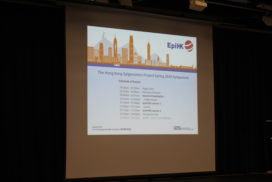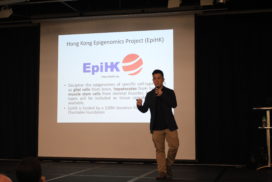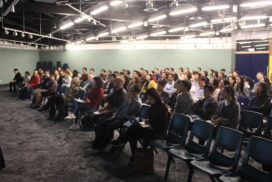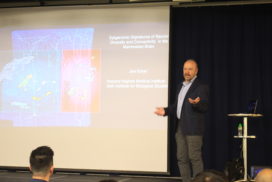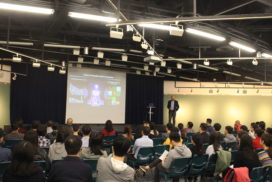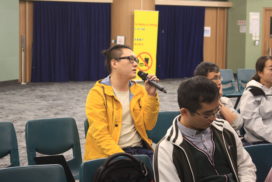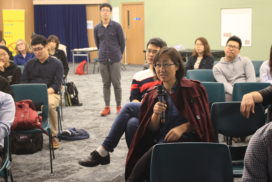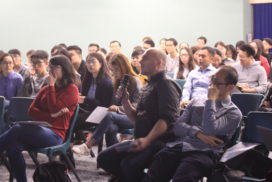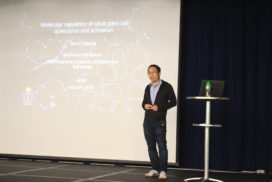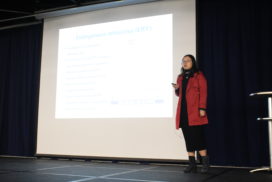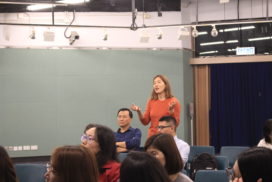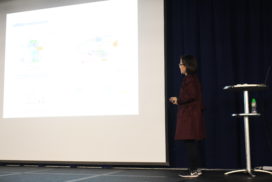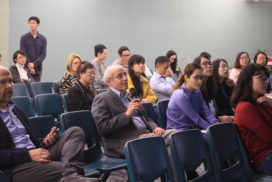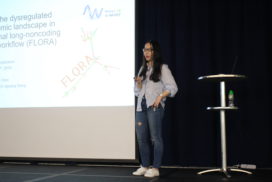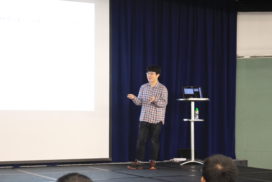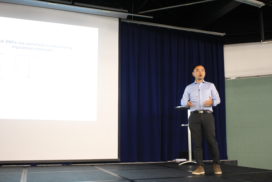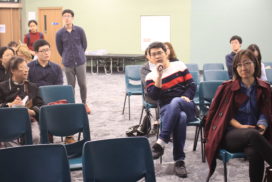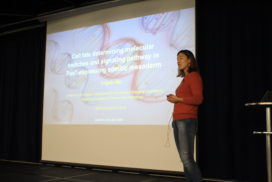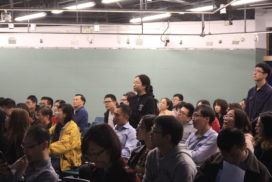EpiHK Spring 2019 Symposium
Highlights:
EpiHK 2019 Spring Symposium
Feb 20, 2019 @ HKUST

Supported by
The Lo Ka Chung Charitable Foundation and HKUST Jockey Club IAS
At the EpiHK 2019 Spring Symposium on Feb 20, 2019, we brought together the research community working on epigenomics for the first EpiHK research symposium. The one-day event featured a mix of talks from principal investigators and trainees from the Hong Kong Epigenomics Project, providing a wonderful outreach opportunity to researchers with related interests and those looking to engage into epigenomics work. We welcomed approximately 120 attendees from different academic institutions, offering a day of scientific talks covering various topics in epigenomics research.
We invited Prof. Joseph Ecker from the Salk Institute for Biological Studies, Howard Hughes Medical Institute, to give a keynote presentation on “Epigenomics of Neuronal Diversity and Connectivity in the Brain“. Prof. Ecker explained how his recent study demonstrated robust classification of brain cell types using single-cell DNA methylation profiles.
“Single-cell DNA methylome profiles are being produced from 116 dissected brain regions. To date we have generated over 46,000 single-cell methylomes from over 23 brain regions.”
The single-cell epigenomic approach provides opportunities to understand cell-type specific contributions of non-coding sequences in brain diseases. His research also profiled epigenetic signatures of long-distance projecting neurons int he mouse brain, aiming to link molecular properties of cell types to neuronal connectivity.
Following a short coffee break, Prof. Tom Cheung from HKUST presented his research on “Molecular regulation of stem cell quiescence and activation“. His lab aims to decipher the molecular mechanisms regulating the quiescent state and formulate approaches for stem cell therapies for degenerative diseases.
Our first trainee talk was by Xuemeng Zhou from Prof. Danny Leung’s lab at HKUST, and she presented her work on “Delineating the cis-regulatory role of endogenous retroviruses in embryonic stem cells“. Her research employed embryonic stem cells as a model to study the potential cis-regulatory function in human and mouse.
Prof. Huating Wang from CUHK explained her research on “MyoD induced enhancer RNA interacts with hnRNPL protein via CAAA motif to activate target gene transcription during myogenic differentiation“. Her team studied eRNA regulation and function using skeletal myoblast differentiation to provide a comprehensive understanding of enhancer transcription and dynamics during myogenic differentiation.
Yiyun Chen from Prof. Jiguang Wang’s lab at HKUST presented her research on “Elucidation of the dysregulated noncoding genomic landscape in cancer by fast long-noncoding RNA assembly workflow“. She has designed the fast long-noncoding RNA assembly (FLORA) pipeline which greatly accelerated the lncRNA reconstruction by prefiltering for properly mapped reads generated from intergenic regions. The user-friendly software FLORA is available here for discovering and annotating novel lncRNAs.
After lunch, the group reconvened in the hall to start the afternoon section.
Zhenghao Zhang from Prof. Kevin Yip’s lab at CUHK gave a talk on his work on “A semi-supervised framework for heterogeneous networks reveals relationships between genome architecture and gene expression“. His research focused on a general framework that can integrate very different types of data, including DNA contacts in 3D genome architecture, protein-protein interactions, and broad chromatin accessibility domains, for studying their joint effects on gene expression.
Prof. Jian Yan from City University presented his research on “Systematic analysis of differential transcription factor binding to non-coding variants in the human genome“. The study used an ultra-high throughput multiplex protein-DNA binding assay and machine-learning approach to derive computational models for predicting differential DNA binding of transcription factors to common non-coding variants. This work would facilitate discovery of potential causal variants and dysregulated molecular pathways in human diseases. Prof. Yan joined the event as an investigator outside of the EpiHK network, and it was wonderful for him to share with us his work on epigenetics.
Prof. Angela Wu from HKUST shared her recently published work on “Cell fate determining molecular switches and signaling pathway in Pax7-expressing somitic mesoderm“. Her work aimed to understand the regulatory mechanism of the lineage restriction, of how lineage potency of Pax7-expressing cells change over developmental time. The results from her work will enable further functional evaluation of the newly identified cell-types.
The last talk of the day was by Prof. Karl Herrup from HKUST, who presented on “DNA crumbs in the cytoplasm – where does it come from and what does it mean“. His research focused on cytoplasmic DNA, and the levels of such DNAc in relation to activity, age and disease. This work has also raised different questions on DNAc, such as how cell cope with DNAc and survive, and other critical aspects which may be explained by epigenetic approaches.
This EpiHK 2019 Spring Symposium is the first of our annual research symposium, and it was an excellent outreach opportunity to our research community.
Thank you to all the speakers, participants and volunteers who made it a great success; and we look forward to the new research ideas and collaborations which were sparked by this event!

